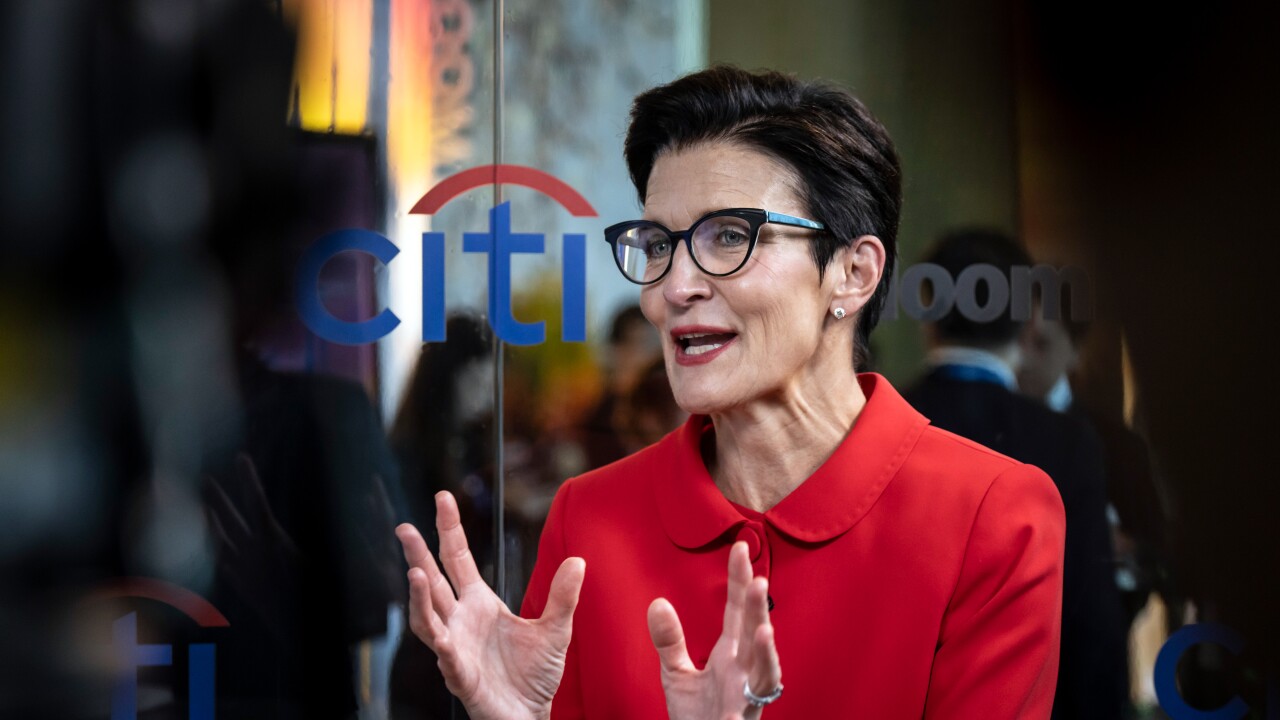
Federal Reserve Gov. Christopher Waller said the central bank does have a problem with income losses, but interest paid on reserves are not to blame.
In a speech delivered at the Federal Reserve Bank of Dallas on Thursday, Waller made the case that the true source of the Fed's negative returns is its repeated rounds of
"Our interest expense on reserves is now exceeding our interest income on our asset holdings. This is all true," he said. "But this outcome is because of engaging in QE for many years since 2007, not because we are running an ample reserves system."
Waller's comments come at a period of
During his speech, Waller defended the central bank's ample reserves regime, arguing that it plays a critical role in the smooth transmission of monetary policy and the stability of other short-term funding markets.
The Fed began paying interest on reserves in 2008 to incentivize banks to maintain bigger balances of reserves. Had the Fed not made that shift, Waller said, banks would have preferred other interest-bearing assets, such as Treasury securities, for their short-term funding and liquidity needs.
"If banks manage their liquidity only by buying and selling Treasury securities, several banks suddenly selling Treasury securities could flood the market and put undesirable upward pressure on interest rates across the economy," he said. "So, an ample reserves regime, where we pay interest on reserves, ensures there are enough reserves in the system to avoid this kind of sell-off in Treasuries. This stabilizes the financial system without harming banks or their customers."
Waller is not the only Fed official to champion the ample reserve regime in recent weeks. During
Federal Reserve Bank of St. Louis President Alberto Musalem, in a webcast Q&A on Thursday, also endorsed the Fed's current approach to reserve management.
"If we were to operate in a scarce reserves regime … that requires more active management of open market operations to adjust to shifts in the demand curve, in demand for reserves. It's a more active management," Musalem said. "The benefit of an ample reserves regime with [interest on reserves] is that it allows the Fed to inject liquidity quickly into the market if there's a need for quick liquidity injection without losing interest rate control or, in other words, without sacrificing monetary policy control."
Waller added that the Fed offsets the interest it pays on reserves — which sit on the liabilities side of its balance sheet — with interest it collects from its own assets, namely Treasury bills and bonds. In this sense, he said, the interest on reserves is provided virtually cost-free.
"We can provide all the liquidity that the banks need at zero marginal cost, which makes me wonder why some want to go back to a scarce reserve system," Waller said. "I often use the following analogy to drive this point home: If governments could provide clean, safe drinking water for citizens at zero cost, why would you want to make it scarce?"
Waller said the Fed's negative income is primarily the result of two things: QE in response to recent crises — namely the global financial crisis and the COVID-19 pandemic — and the sharp rise in interest rates in 2022 and 2023. As a result of these developments, the Fed has a large stock of assets that are yielding at a lower rate than it is currently paying out on its liabilities.
Waller also noted that the Fed's balance sheet growth — from $870 billion in 2007 to $6.7 trillion today — has also been outside the central bank's control. He pointed to expansions in zero-cost liabilities such as currency and the Treasury's General Account as line items that force the Fed to increase its assets. But, he said, the Fed could have withstood these increases without incurring losses had it not engaged in QE.
"With this balance sheet, the Federal Reserve would never run losses, the banks would have ample liquidity for market functioning, and the Fed would not face serious interest rate risk on its asset holdings," he said.
Still, despite the lingering balance sheet implications, Waller said QE was a necessary action to support the U.S. economy. He added that the consequences of it would have been impossible to accurately predict in real time.
"Those benefits and costs are often difficult to quantify at the time QE is undertaken," he said. "It is only with hindsight that we can fully assess them, which is one of the challenges of making policy in real time."






